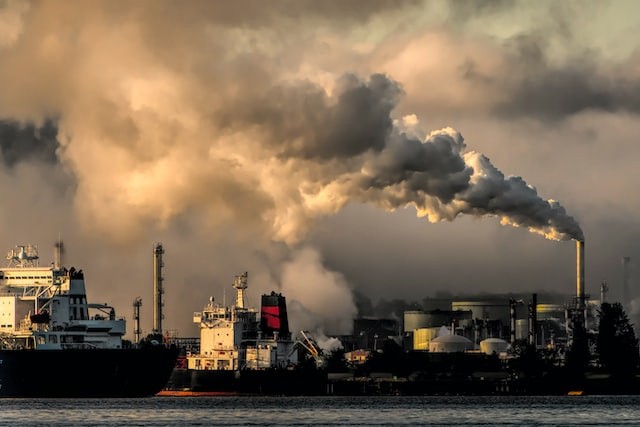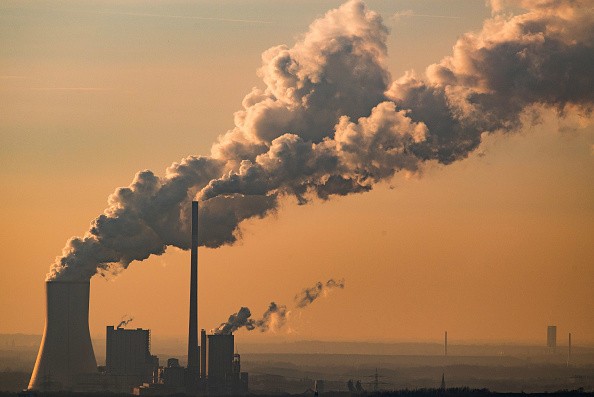According to a group of experts, fossil fuel firms should be required to "take back" the carbon dioxide released from their goods, giving them direct accountability for restoring the climate.

An Ongoing Discussion
Although it is widely accepted, the idea that the party that causes the pollution should pay for its cleanup has never been applied to the ongoing climate catastrophe.
However, according to Myles Allen, a professor of geosystems science at the University of Oxford, technology to absorb and store carbon dioxide underground is improving and is now theoretically viable.
He noted that effective policy has always been absent, despite the technology being there. "Policy, not technology, has failed; we know how to fix this,"
He proposed that as a requirement for operating, the businesses that make money from extracting fossil fuels-oil, gas, and coal producers globally-should pay for an equal amount of carbon dioxide to be deposited geologically.
Also Read : Earth "Still on the Brink of Climate Catastrophe" Despite Multiple International Efforts
Potential Implementation

In a report that outlines the potential implementation of such an "extended producer responsibility," Allen collaborated with four other scientists from Oxford, the US, and the Netherlands. The article was published on Thursday in the journal Environmental Research Letters.
A "carbon takeback requirement" would require storing underground carbon dioxide equal to the quantity of carbon dioxide produced by each fossil fuel imported or exported into a country or group of countries. By 2050, it may gradually store all emissions, assisting the global effort to achieve net zero emissions.
The authors of the research made the case that such a system would guarantee the impact on the climate was neutralized, and the cost of doing so would be part of the cost of producing fossil fuels, as opposed to a carbon tax, which discourages the use of fossil fuels by making them more costly.
Carbon Capture and Storage
Although carbon capture and storage technology are now costly, its cost is projected to drop significantly within a few decades.
This would make it possible to store carbon dioxide underground in the "geosphere" rather than in the biosphere, which is now under strain due to the required land for food production worldwide.
"If you produce too much carbon dioxide, you will need to dispose of it, and you can't depend on the biosphere to grow because you need it to provide food. Therefore, it will need to be buried again, said Allen. "This targeted strategy will get the results we need."
The organization emphasized that the Intergovernmental Panel on Climate Change, a group of the world's top climate scientists, has stated clearly that removing carbon dioxide from the atmosphere, as well as the phasing out of fossil fuels and the quick deployment of renewable energy, is likely to be necessary to limit global temperatures to 1.5C above pre-industrial levels, which is essential to avoid the worst effects of climate breakdown.
However, Allen's prior effort to make the notion into policy was unsuccessful in 2015 when Lord Oxburgh, a former Shell executive, proposed an amendment to an energy bill in the House of Lords. Despite having support from both the administration and the opposition in theory, the plan was rejected due to parliamentary processes and was not reintroduced.
Carbon takebacks may complement carbon border taxes or carbon border adjustment mechanisms (CBAMs) by discouraging or preventing imports from nations that do not require their industries to reduce their carbon emissions in any way.
Urgent Action Needed
There is an urgent need for bold new CO2 emission reduction measures, according to University College London professor Paul Ekins of resources and environmental policy. [This idea] offers a way to achieve the enormous carbon capture and storage infrastructure that almost all models predict would be required if the 1.5C goal is to be realized.
Before the goal becomes insurmountably out of reach, such steps urgently need to be discussed in [UN climate] meetings.
For similar news, don't forget to follow Nature World News!
© 2025 NatureWorldNews.com All rights reserved. Do not reproduce without permission.





